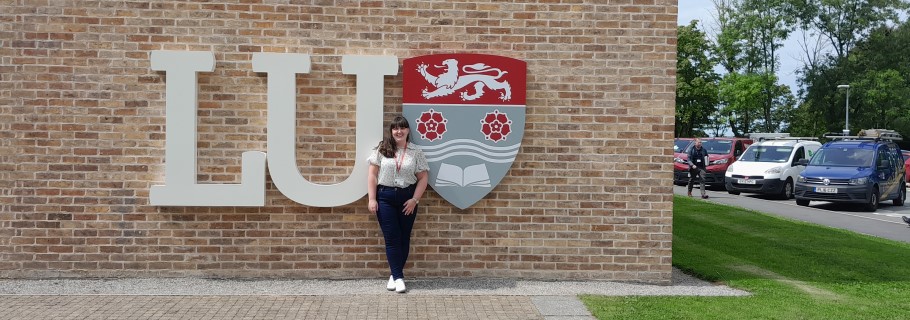
What I learnt working in higher education for a year - my tips for schools building their university links
Since leaving the higher education sector earlier this year, I have been quite vocal on social media about the lessons I learnt in my job about myself, the working world and the sector of higher education. For me, the job was such an enriching experience, both professionally and personally. It’s a strange feeling going from being the student applying to university to being part of a team who helps students make these ultimate decisions — almost like peeking behind the curtain at a magic show.
With this in mind, my job taught me a lot about how we talk to students about university and ultimately, their future and what they should do with it.
I remember what it was like at 18, having to make the decision on what the rest of my life would look like and which routes I should go down to give myself the best opportunities. Don’t get me wrong, I loved university and I really got stuck in it. I had all types of part-time jobs throughout my three years there, I learnt new skills and hobbies and it gave me some wonderful friends who I wouldn’t replace for the world. But 18-year-old me wasn’t promised the fantasy. She wasn’t promised how fulfilled and happy she would be. She wasn’t promised that university was a time for self-improvement and growth as well as academic achievement. 18-year-old me was told that going to university was the best option for achieving anything after she left school, and almost 5 years later I can see essences of this still remain around the conversation on university.

Here is what I have learnt from that year and what I think should change:
University is NOT the only post-18 option
If students want to work, take a gap year, do an apprenticeship or travel, these are all acceptable things to do when they leave school. Alternatively, if they don’t want to go to university yet or at all that’s also fine. We need to be giving students the information to equally choose between a number of options when they leave school rather than having them focus tunnel vision on higher education.
It is fine to not know what you want to do ‘when you grow up’
The dreaded question for students and graduates is “so what are you doing to do when you finish?”. For me, this question changed almost half a dozen times between deciding to go to university and graduating. It’s good for students to have some sort of goal if they decided to go to university — to study a subject they love; to build on new skills; to find new opportunities or even to work out what they actually want to do when they leave university. Students don’t have to have everything figured out at 18, I certainly didn’t.
Money is not the goal
I’ve spoken to so many amazing students over the past year who all had different ambitions — lawyer, pilot, tattoo artist, doctor — and some who were motivated by other things, like money. It’s something that initially shocked me, but over time is easy to understand. They have likely seen their parents, carers, friends, or whoever is at home struggle through the pandemic and now the cost of living crisis in all different sorts of jobs and they want some security in their own future. Whilst money helps in the working world, it won’t be able to sustain students through the ‘Sunday Scaries’ or the early morning Mondays — finding something they are good at and that they love, will.
We need to ease up on the university pressure
This one works in tandem with my first point, but many students when faced with what to do post-18 will choose a university just for the sake of it. I’ve seen this over the past year, but also in my peers throughout my own university experience who either dropped out or lost motivation because it wasn’t for them. Choosing something that isn’t university doesn’t make it a less credible option or mean students are a failure and the pressure on current students is making them think this.
Grades don’t mean everything
This may sound counter-productive, but having been on both sides of the university process I’ve learnt this — grades are a moment and don’t define what students do in the future, they are merely a right of passage onto what you do next. That being said, I understand how much a student’s self-worth is placed on getting high grades, performing well and wanting to impress those around them, particularly when it comes to parents and teachers. Heck, I cried when I got my A-Level results, and they were not happy tears. Grades help with a student’s next steps, and if something goes wrong, there is always something to be done. With all the time I spent doing extra studying or worrying about the grades I’d gotten, I wish I would have put that time into my hobbies, building skills, spending time with my friends or doing things that actually made me happy.
Just so you know, this blog was published on 21 Nov '22 and everything was accurate to the best of our knowledge when we hit publish.
Stay up to date with everything university!
This free newsletter includes information about university events added to UniTasterDays, as well as details on new webinars, resource releases, and more.




